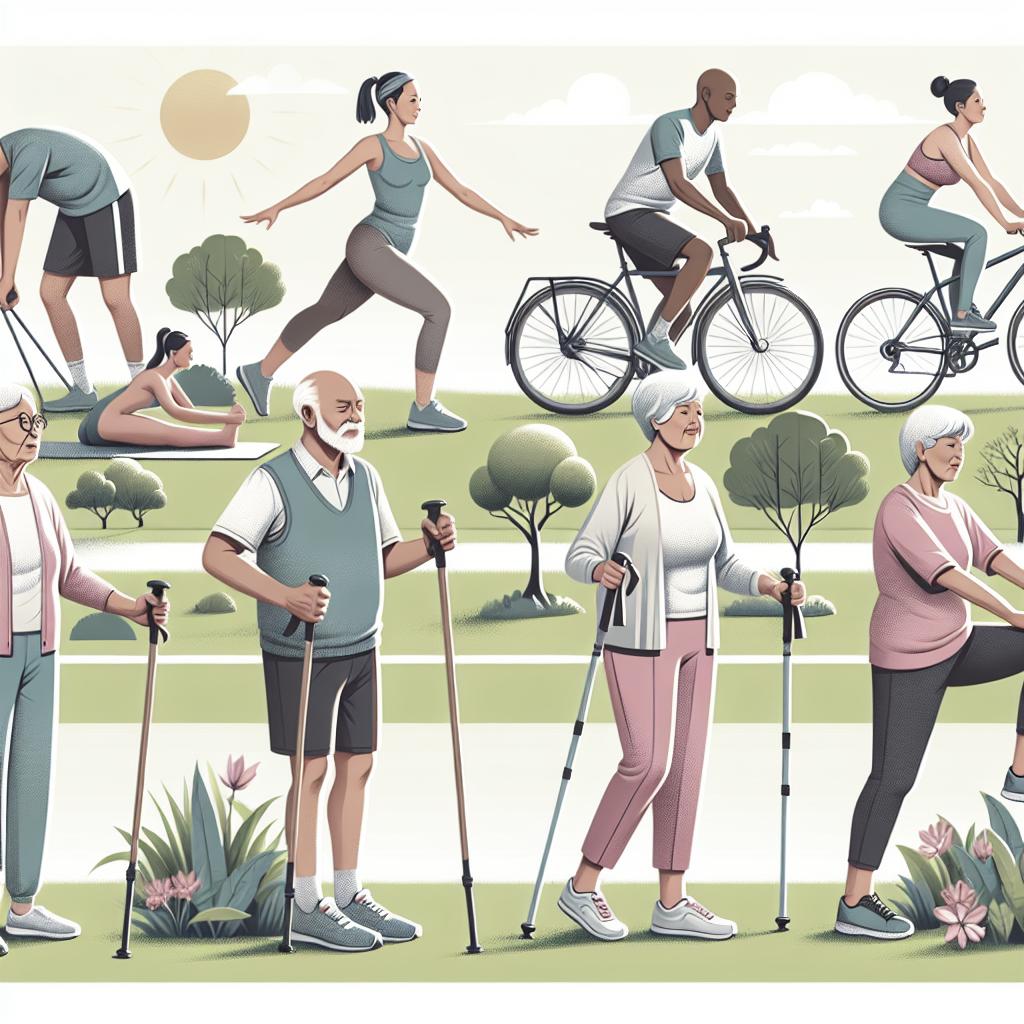<>
As we age, our needs and priorities evolve, and ensuring we maintain a high quality of life requires adapting our habits and routines accordingly. This blog post offers essential tips for older adults to enhance their well-being, with a focus on daily practices and long-term goals. We’ll discuss how to start your day positively, the importance of regular exercise, the power of staying connected with friends and family, and the joy of starting new projects. We’ll also address the significance of mental health care and the necessity of getting enough sleep. By integrating these tips into your daily life, you can achieve a healthier, more fulfilling lifestyle.
Tips for older adults
As we get older, maintaining overall well-being is crucial for leading a fulfilling life. It’s essential to focus on health, connectivity, hobbies, and mental stability. Simple, everyday practices can make a significant difference in the quality of life. From physical activity to mental health awareness, here’s a comprehensive guide to help seniors live a vibrant and active life. Formulating a balanced routine that includes physical activities, social interactions, mental stimulation, and ample rest can contribute immensely to overall happiness and wellness in older adults. This multi-faceted approach ensures that seniors can continue to thrive physically, mentally, and emotionally.
Start your day
Starting your day on a positive note sets the tone for the rest of the day. Waking up early and engaging in a morning ritual, like a light stretching routine or a brief walk, can invigorate your mind and body. Incorporating mindfulness practices, such as meditation or deep breathing exercises, can also help reduce stress and improve mental clarity. A balanced and nutritious breakfast is another key component of a good morning routine. Opt for whole grains, fruits, and proteins to provide the necessary nutrients and energy for the day ahead. Staying hydrated by drinking plenty of water is equally important, as it helps maintain energy levels and overall health. Setting daily goals or intentions can also add a sense of purpose to your day. These don’t have to be extensive but should be meaningful. Whether it’s completing a small craft project, reading a chapter from a book, or spending time with loved ones, having a daily aim can keep you motivated and productive.
Find a time to exercise
Regular physical activity is essential for maintaining mobility, strength, and independence as we age. It’s important to find a form of exercise that you enjoy and can stick to. Activities like walking, swimming, tai chi, or yoga can be particularly beneficial, offering low-impact routines that improve flexibility, strength, and balance. Integrating exercise into your daily routine doesn’t have to be strenuous. Even mild physical activity, such as gardening or simple stretching exercises, can considerably improve physical health and mood. Many community centers and gyms offer senior-friendly classes that provide opportunities for socialization alongside exercise. Before starting a new exercise regime, it’s advisable to consult with a healthcare professional to ensure it’s safe and suitable for your individual health needs and conditions. Tailoring your routine to fit your capabilities will help prevent injuries and promote sustainable, long-term fitness habits.
Stay connected
Social connections play a vital role in mental and emotional well-being. Maintaining relationships with family and friends helps prevent feelings of loneliness and isolation, which are common among older adults. Regular social interactions can uplift your spirits and provide a support network during challenging times. Involvement in community activities, clubs, or groups that interest you can foster new friendships and provide a sense of belonging. Volunteering is another excellent way to stay engaged and contribute positively to your community while meeting new people with similar passions. For those who may be less mobile or live far from loved ones, technology offers practical solutions. Video calls, social media, and online communities can bridge the gap, keeping you connected with family and friends no matter the distance. Embracing these technological tools can significantly enhance social well-being.
Start a new project that inspires you
Retirement provides the perfect opportunity to dive into new projects and passions that you may not have had time for earlier in life. Whether it’s starting a garden, writing a memoir, learning to paint, or studying a new language, engaging in stimulating activities keeps your mind active and creativity flowing. Having a project to look forward to each day can provide a sense of purpose and accomplishment. It also creates an opportunity to challenge yourself and continue personal growth. Seeking out community classes or online courses can be an excellent way to learn new skills and meet like-minded individuals. Setting realistic and achievable goals for your projects ensures that they remain enjoyable rather than becoming a source of stress. Break down larger tasks into smaller, manageable steps, and celebrate your progress along the way.
Take extra care of your mental health and get enough sleep
Mental health is just as important as physical health, especially in the later stages of life. Practicing mindfulness techniques such as meditation, journaling, or engaging in hobbies can significantly reduce stress and anxiety. It’s important to recognize and address any signs of depression or mental fatigue early on, seeking professional help if needed. Sleep is another critical component of overall well-being. As we age, we might experience changes in sleep patterns, but maintaining good sleep hygiene can help mitigate this. Establishing a calming nighttime routine, limiting caffeine and screen time before bed, and ensuring your sleep environment is comfortable can improve sleep quality. Regular mental exercises, such as puzzles, reading, or learning new skills, can keep the brain sharp and prevent cognitive decline. Maintaining a balanced diet and staying physically active also play essential roles in mental health by promoting better mood and cognitive function. —
Lessons learned
| Aspect | Tips |
|---|---|
| Start your day | Begin with light exercise, mindfulness practices, and a nutritious breakfast. |
| Find a time to exercise | Engage in enjoyable physical activities like walking, swimming, tai chi, or yoga. Consult a healthcare professional before beginning any new exercise regime. |
| Stay connected | Maintain relationships, join community activities, volunteer, and use technology to stay in touch with loved ones. |
| Start a new project that inspires you | Take up new hobbies or projects that inspire and challenge you, and set achievable goals. |
| Mental health and sleep | Practice mindfulness, stay mentally active, and maintain good sleep hygiene for overall well-being. |


